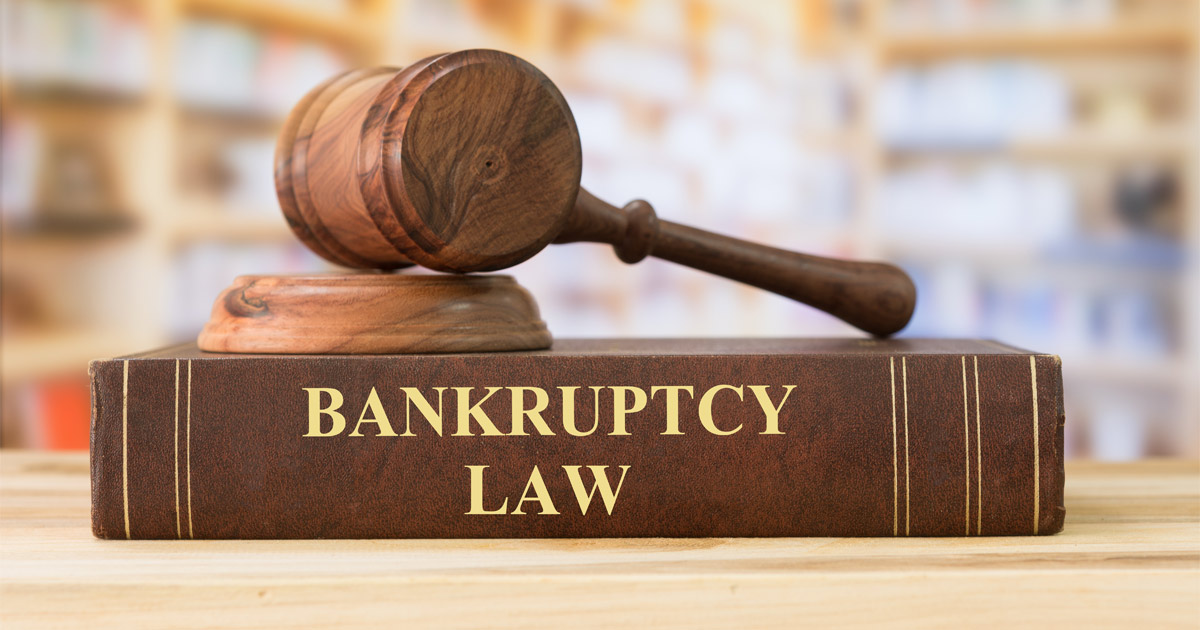When financial trouble strikes, one of the biggest fears people face is losing everything they’ve worked so hard to build. The thought of creditors taking your home, your car, or your savings can be overwhelming. But here’s the good news—filing for bankruptcy doesn’t always mean losing your assets. In fact, with the right legal guidance, it can help you protect them. That’s where a bankruptcy attorney becomes your greatest ally. If you’re struggling with overwhelming debt and searching for a bankruptcy attorney near me in Austin Texas, finding the right legal guidance can help you protect your assets and start fresh financially. Let’s explore how a skilled bankruptcy lawyer can help you safeguard what matters most while helping you get back on the road to financial recovery.
1. Understanding the Role of a Bankruptcy Attorney
Before diving into the asset protection side, it’s important to understand what a bankruptcy attorney actually does. A bankruptcy lawyer proficient in helping individuals and businesses navigate the complex legal process of filing for bankruptcy. They analyze your financial situation, explain your legal options, and help you determine which type of bankruptcy—Chapter 7 or Chapter 13—fits your circumstances.
Bankruptcy laws are incredibly detailed and differ from state to state. A seasoned attorney understands these nuances and uses them to your advantage. From preparing paperwork to representing you in court, their job is to ensure you make the possible financial decisions while minimizing the risk of losing valuable property. In short, they are your guide through one of the toughest financial journeys you’ll ever face.
2. Identifying Which Assets Are Protected Under Bankruptcy Law
One of the biggest misconceptions about bankruptcy is that you have to surrender all your assets. That’s simply not true. Bankruptcy law includes exemptions—rules that protect certain types of property from being seized or sold. These exemptions vary by state, but they often include essential items like your home, car, personal belongings, and retirement accounts.
A bankruptcy attorney helps you identify which of your assets qualify for these exemptions. For example, if you file under Chapter 7 bankruptcy, certain properties are protected up to specific dollar limits. If you choose Chapter 13, your lawyer can help you create a repayment plan that allows you to keep your property while paying off your debts over time.
Without proper legal guidance, you might miss out on these exemptions or misinterpret the law, which could cost you more than you think. An experienced attorney ensures that every exemption available to you is fully utilized to protect your most important possessions.

3. Choosing Between Chapter 7 and Chapter 13 Bankruptcy
Choosing the right type of bankruptcy filing is one of the most crucial decisions you’ll make—and your attorney’s guidance is invaluable here.
Chapter 7 bankruptcy (often called “liquidation bankruptcy”) wipes out most of your unsecured debts, like credit cards or medical bills. While it may involve selling non-exempt assets, most filers actually keep much of their property thanks to legal exemptions.
Chapter 13 bankruptcy, on the other hand, allows you to reorganize your debts and make affordable payments over a period of three to five years. This option is particularly helpful if you’re behind on mortgage or car payments but want to keep your home or vehicle.
Your bankruptcy attorney evaluates your income, debts, and goals to determine which chapter offers the protection for your assets. Filing under the wrong type of bankruptcy—or without proper strategy—can lead to unnecessary losses. That’s why having an proficient by your side makes all the difference.
4. Protecting Your Home from Foreclosure
For many people, the home is their most valuable and emotionally significant asset. When you’re facing bankruptcy, keeping your home becomes the priority—and this is where an attorney can truly help.
If your home is at risk of foreclosure, filing for bankruptcy triggers an automatic stay, which immediately halts foreclosure proceedings and creditor actions. This gives you breathing room to reassess your financial situation and work with your attorney to create a plan.
In a Chapter 13 filing, your lawyer can help you set up a repayment plan to catch up on overdue mortgage payments while keeping your home. In a Chapter 7 case, they can help you determine whether your home equity is protected under state or federal exemptions.
Either way, an experienced bankruptcy lawyer ensures you take full advantage of the legal tools available to protect your property from being taken away.
5. Keeping Your Car and Other Personal Belongings
A reliable car isn’t just a luxury—it’s often a necessity for work, school, and everyday life. Bankruptcy law recognizes this, and in most cases, you won’t have to give up your vehicle if you file correctly.
Your bankruptcy attorney helps you understand how car loans, leases, and exemptions work together. In a Chapter 7 filing, your car may be protected up to a certain value, and if you still owe money on it, you might be able to reaffirm the loan—essentially agreeing to keep paying it in exchange for keeping the car.
In Chapter 13 bankruptcy, your lawyer can include car payments in your repayment plan, which might even lower your monthly payments or interest rates. Beyond your vehicle, a bankruptcy lawyer also ensures that your household goods, furniture, clothing, and personal items are properly categorized under exemptions so they remain safe from liquidation.
6. Shielding Retirement Accounts and Wages
You’ve worked hard to save for your future, and you shouldn’t have to lose that security because of temporary financial hardship. Fortunately, most retirement accounts—like 401(k)s, IRAs, and pensions—are protected under bankruptcy law.
A bankruptcy attorney will confirm which accounts are exempt and ensure that creditors can’t touch them. They’ll also review your income and help you protect your wages from garnishment. In some cases, your lawyer can negotiate with creditors to reduce the amount they can legally claim, allowing you to keep more of your earnings while still satisfying your debts responsibly.
7. Avoiding Costly Mistakes and Legal Risks
Filing for bankruptcy involves extensive paperwork, strict deadlines, and detailed financial disclosures. One small error—like failing to list an asset or misreporting your income—can lead to case dismissal or loss of property.
A bankruptcy attorney ensures your filing is accurate, complete, and compliant with all legal requirements. They know how trustees and creditors think, which helps you avoid red flags that could jeopardize your case. Moreover, they’ll help you avoid actions that might be seen as fraudulent, such as transferring property before filing or concealing assets, which could result in severe penalties.
8. Providing Peace of Mind During a Stressful Time
Financial distress is emotionally draining. Constant calls from creditors, sleepless nights worrying about bills, and the uncertainty of your future can take a huge toll. Having a bankruptcy attorney by your side brings not only legal protection but also peace of mind.
Your lawyer acts as your advocate, handling communications with creditors and ensuring they stop harassing you. They guide you through each step, explaining your rights and keeping you informed. Knowing that an proficient is protecting your interests allows you to focus on rebuilding your financial life instead of drowning in anxiety.
9. Building a Stronger Financial Future
The goal of bankruptcy isn’t just debt elimination—it’s a fresh financial start. A skilled bankruptcy attorney helps you rebuild your credit, budget wisely, and make informed decisions to prevent future financial trouble. Many law firms even provide post-bankruptcy counseling to help clients regain stability.
By protecting your assets now, your attorney ensures you have the foundation to recover and move forward. Bankruptcy doesn’t define your financial future—it simply resets it. And with the right legal partner, that future can be stronger than ever.
Conclusion
Facing bankruptcy can be frightening, but it doesn’t have to mean losing everything. With the help of a bankruptcy attorney, you can protect your home, car, retirement savings, and personal assets while finding a realistic path out of debt. They understand the complexities of bankruptcy law, use every legal exemption available, and represent your interests from start to finish. If you’re struggling with debt and worried about your financial future, don’t wait until it’s too late. Consult a trusted bankruptcy attorney in your area today and take the first step toward protecting your assets and reclaiming your peace of mind.




